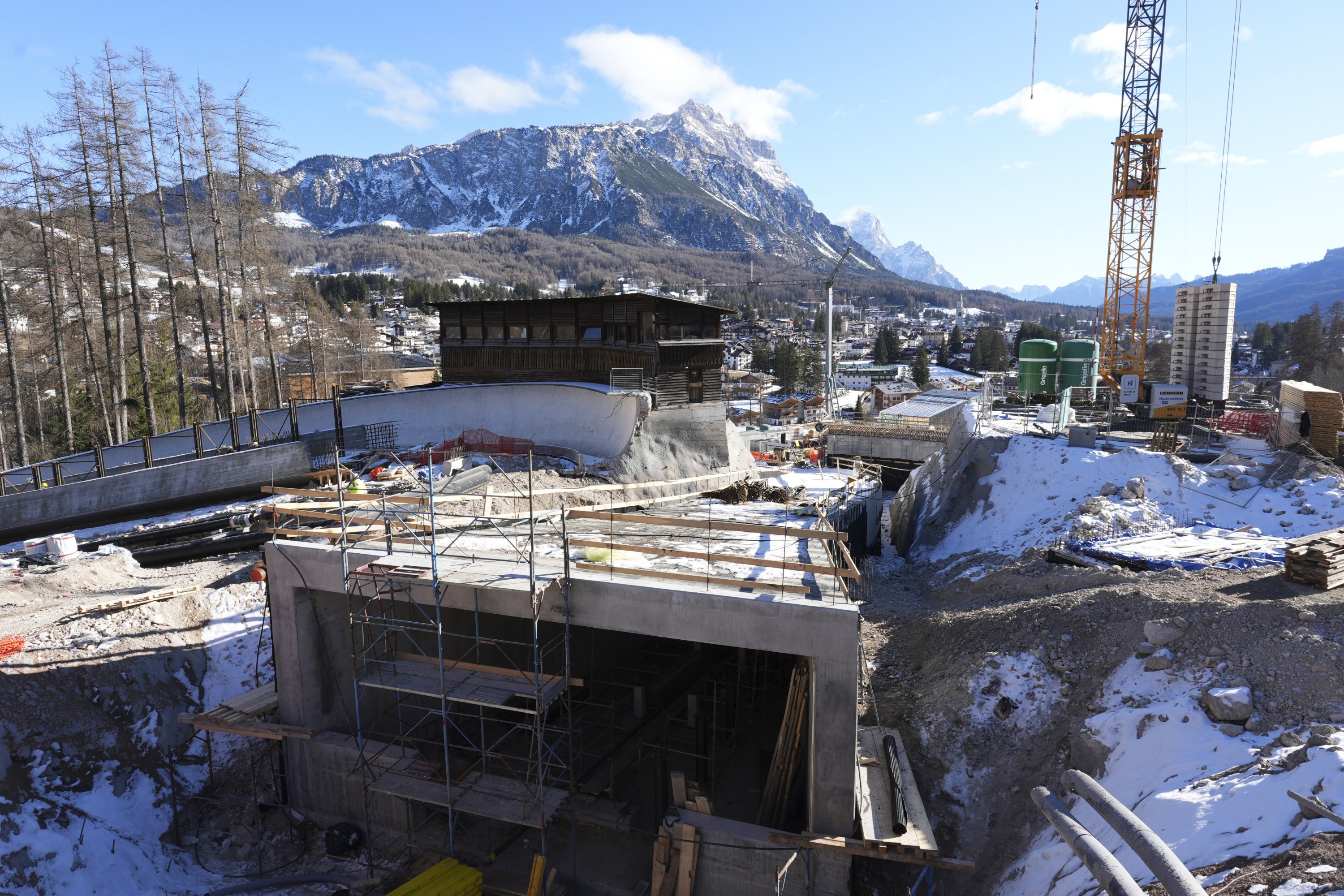© Turkuvaz Haberleşme ve Yayıncılık 2026
Sochi’s media village was still under construction, and showers ran yellow when journalists arrived for the 2014 Winter Games.
The 2016 Rio Olympics were slammed as the “worst-prepared” ever by an International Olympic Commitee (IOC) vice president.
Now, the 2026 Milan-Cortina Winter Games could take lateness to a new level. The century-old sliding center, being rebuilt for bobsled, luge and skeleton, is cutting it so close that the IOC has demanded a backup plan – one that could relocate the events nearly 4,000 miles away to Lake Placid, New York if Italy’s track isn’t ready in time.
Thursday marks exactly one year until the Feb. 6, 2026, opening ceremony at San Siro Stadium, and the track in Cortina remains a half-finished construction site.
The IOC has set a deadline at the end of next month for pre-certification of the Cortina track, but no one is guaranteeing it will pass the test.
Fabio Saldini, the Italian government commissioner overseeing the $123 million project, told The Associated Press (AP) during a recent visit that nearly 70% of the track was complete – even if the muddy, chaotic construction site made it hard to tell.
With 180 people working from 6 a.m. to 1 a.m. daily, the first ice is scheduled to be laid on the track in early March.
"We have huge support from the construction firms, the government, and (Infrastructure and Transport Minister Matteo) Salvini,” Saldini said. "With everyone’s support, we will be able to finish in time.”
Construction began less than a year ago, and no sliding track has ever been built in such a short time frame. An official test event is set for October, a crucial step given the death of Georgian luger Nodar Kumaritashvili in a training crash just hours before the 2010 Vancouver Games' opening ceremony.

The IOC initially preferred using an existing track in Austria or Switzerland rather than rebuilding Cortina’s, which had been closed since 2008. But it allowed the local organizing committee to select its own backup plan.
"We chose Lake Placid because it was the only place that offered us the track without requiring any investment,” Milan-Cortina CEO Andrea Varnier told The Associated Press (AP). "But we’re counting on hosting the sliding sports here in Cortina.”
Organizing committee president Giovanni Malago downplayed the Lake Placid contingency plan.
"It's just a formality. There's no substance to it,” he said.
Environmental groups have protested the Cortina track’s reconstruction, citing climate damage.
"There were 800 trees cut down,” Saldini said. "But they were not all 100 years old, like some people claimed. And we’re going to plant 10,000 trees when we’re done.”
General ticket sales for the Games are about to begin following a pre-registration process that drew more than 350,000 requests – 70% of them from abroad, spanning more than 210 countries.
Sliding events are among the most affordable attractions, with luge tickets starting at 40 euros ($42) and bobsled tickets capped at 100 euros ($104).
But what happens for ticket holders if the Cortina track isn’t ready and events are moved to Lake Placid?
"It will be a whole different experience,” said Paul Caine, president of hospitality package provider On Location, regarding the shift from glitzy Cortina to upstate New York.
Caine noted that while "nobody wanted to go to Tahiti” for the surfing events at last year’s Paris Olympics, hospitality packages still sold for the sailing competitions in Marseille – located 3.5 hours by train from Paris.
On Location has received hospitality package requests from 62 countries so far, with ice hockey, biathlon, and figure skating emerging as the most popular sports. Private boxes for the opening ceremony at San Siro Stadium have already sold out.
These are the first Olympics to fully embrace cost-cutting reforms introduced by IOC President Thomas Bach, utilizing mostly existing venues – a strategy that has resulted in a geographically scattered Games across northern Italy.
Alpine skiing will be split between Cortina (women’s events) and Bormio (men’s events), two locations separated by a 5.5-hour drive. Livigno will host freestyle skiing and snowboarding, biathlon will be in Anterselva, Nordic events will take place in Val di Fiemme, and ice sports will be held in Milan.
"It’s very complicated due to the big distances and because of all the different representatives in each region,” Varnier said. "We have great relationships with everyone, but each has its own way and style of doing things, so we need to adapt. That’s the spirit of these Games: We adapt to the different territories, not vice versa.”
One reason for this adaptive approach is that many venues have a long history of hosting World Cup races and world championships.
Bormio hosted the Alpine skiing world championships in 1985 and 2005. Cortina hosted the skiing worlds in 2021 and has held more than 100 World Cup ski races. Anterselva has staged six biathlon world championships dating back to 1975, and Val di Fiemme has hosted three Nordic world championships.
Still, none of that helps an athlete like Ester Ledecka, the Czech sensation who won gold in both Alpine skiing and snowboarding at the 2018 Pyeongchang Games. In 2026, two of Ledecka’s events will take place on the same day – at venues hours apart – meaning she will likely have to choose one over the other.
